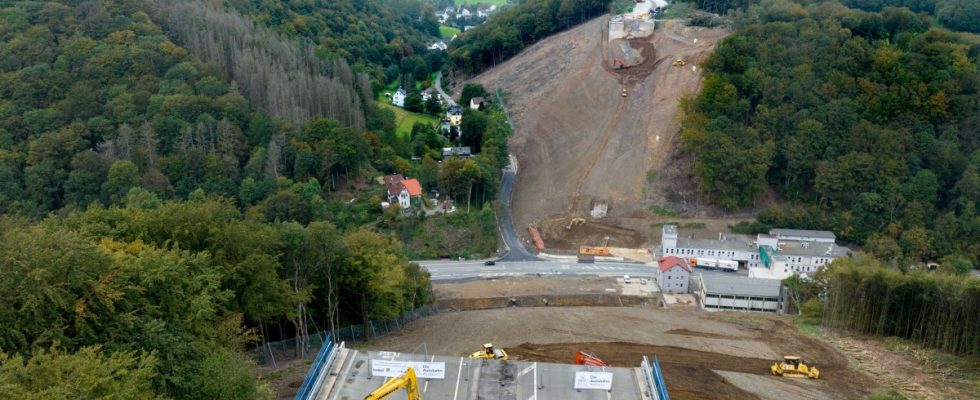The wheels of the German administration grind slowly, but they grind. Lots of text modules are currently circulating between 16 German state chancelleries and the Federal Chancellery. One by one they should join in a building the likes of which the country has never seen before: the Germany Pact. He is supposed to describe a “whole-of-state effort.” In the future, both public and private projects will be realized “much more quickly and less bureaucratically.” And work on it is progressing.
In any case, the heads of the state chancellery arrived at the Chancellery on Wednesday, as well as all sorts of state secretaries to continue forging the pact. They had a draft on the table that showed a lot of agreement. In the future, approval procedures should be much more streamlined and much more digital than today, and different authorities should consult with each other more often and less often one after the other.
How severely should the rights of environmental associations to sue be restricted?
Questions such as species protection should be clarified more closely according to predetermined standards – as is already possible when building new wind turbines. More often than before, projects should be allowed to begin before they are actually approved – if it becomes clear during the process that they are very likely to receive these approvals. The federal and state authorities even want to use artificial intelligence in the future – the main thing is quickly.
However, one question is still controversial: How much should the rights of environmental associations to sue be restricted in order to be able to plan, approve and build more quickly? A current draft that… South German newspaper exists, continues to provide for this possibility. According to this, environmental associations should only be allowed to take legal action to a limited extent if a project is in the predominant or paramount public interest, as has been stipulated by law in the case of new terminals for liquefied natural gas.
“If that happens, it will be a massive weakening of legal protection,” says Sascha Müller-Kraenner, head of German Environmental Aid. “With the result of faster infrastructure expansion at the expense of nature conservation.” Environmental Aid is considered a particularly litigation-friendly association, but it has already achieved a lot in this way.
The so-called “legal planning” can also be found in the draft: In this case, it is not the authorities that give approval for a law, but rather the federal or state parliaments. This also makes it more difficult to have the permit reviewed in court. The direct route here is via the Federal Constitutional Court.
Critics fear that Germany could become “more vulnerable, unsafe and unhealthy.”
At the beginning of the month, the President of the Nature Conservation Association (Nabu), Jörg-Andreas Krüger, made a passionate appeal to the federal and state governments to avert such accelerations. Some of the suggestions made Germany “more vulnerable, more insecure and unhealthy,” he warned together with the heads of his regional associations.
“The ax should be laid on the cornerstones of the legal system” with “scientific ignorance and vehemence”. In the future, more and more projects could be recognized by law as being of paramount public interest. “It is to be feared that this would be used in particular where conflicts with nature and species protection are particularly likely,” wrote Krüger. The Environment Ministry, led by Steffi Lemke (Greens), noted the letter with interest. She could rebel against the plans, but has so far kept a low profile.
The passages in question are still in square brackets in the draft. So they haven’t been agreed upon yet. But square brackets can quickly disappear. And if this pact is about one thing, it’s about speed.

